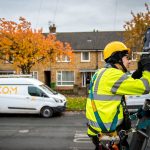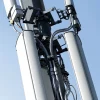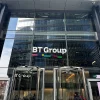Poverty Alliance Warn Vulnerable Users at Risk from UK 2G and 3G Mobile Switch Off UPDATE

A new report from the Digital Poverty Alliance (DPA) has warned that the ongoing switch-off by mobile operators Vodafone / Three UK, EE and O2 of legacy 3G and 2G networks “exposes a deep fault line in digital inclusion,” which they say could risk disconnecting vulnerable users (e.g. those with telecare systems and safety devices) from essential communication and support.
Most of the major mobile network operators have already switched off their 3G mobile (mobile broadband) services, with O2 due to complete their own process this year. The change frees up radio spectrum so that it can be used to further improve the network coverage and data speeds of more modern 4G and 5G networks, as well as future 6G services. The switch-off also reduces the operators’ costs and power consumption.
Broadly speaking, most of the 3G switch-off process appears to have been fairly uneventful, although that isn’t too surprising because 3G was always a bit more data-focused than 2G and struggled its way into the market. The technology thus ended up being rapidly superseded once 4G arrived. Not to mention that mobile operators did provide a fair amount of support during the switch-off process.
Advertisement
The next step will be to switch-off the ancient 2G network, which will be a slower process because it remains necessary for various devices (e.g. Energy Smart Meters / IoT) and as a fallback in areas of poor 4G and 5G signals. O2 has already started this process, although they won’t completely switch it off for several more years. EE then aims to switch it off from May 2029 and VodafoneThree plans to achieve the same outcome during 2030 (Three UK doesn’t have a 2G network).
However, the DPA’s latest policy brief – 2G/3G Switch-Off: Readiness and Risk – examines what this shift means for households already facing digital poverty and warns that, without targeted support, the phase-out “could sever a digital lifeline” – cutting people off from family, healthcare, and emergency systems that depend on older connectivity.
The report does note that some providers, such as O2, are “taking positive steps“, like offering free 4G-ready handsets to customers at risk of losing service. “But isolated good practice cannot replace coordinated national action,” said the brief.
Elizabeth Anderson, CEO of the Digital Poverty Alliance, said:
“As the UK moves toward retiring its 2G and 3G networks, we cannot allow progress to come at the cost of connection. The people most at risk are often those least able to upgrade – older adults, those on low incomes, and individuals who depend on telecare for safety. Unless action is taken now, the switch-off could disconnect exactly those who rely on these systems the most.”
In response, the DPA has published a series of recommendations for the UK government, regulators, and industry to ensure the transition is “inclusive and equitable” through practical measures.
Advertisement
DPA Recommendations
• Providers should supply upgraded telecare devices, including installation, at no additional cost.
• Free replacement and installation of security alarms that currently rely on 2G or 3G networks.
• Providers should offer affordable upgrade paths or price-match older 3G contracts for customers in digital poverty.
• Government and industry must coordinate offline awareness campaigns to reach those without digital access.
• Digital inclusion and vulnerability training should be mandatory for frontline provider staff.
• Free, community-based digital skills training should accompany any device upgrade schemes.
The report seems to suggest that mobile operators should be the ones to supply and install “upgraded telecare devices” for free, which is obviously not their field and is more the responsibility of the telecare industry – one that has often failed to ensure the hardware they supply works properly with modern networks. A similar issue existed with the legacy phone (PSTN) switch-off and telecare providers have since stepped up their involvement to help solve that alongside network operators.
Clearly the 2G switch-off process is going to require a lot more handholding than it did with 3G, which isn’t surprising given the wider context of its use. This is exactly why mobile operators are working to a much more gradual and graceful retirement of 2G than we saw with 3G.
UPDATE 11th Nov 2025 @ 12:15pm
We’ve had a comment from Tesco Mobile.
Advertisement
Laura Joseph, Chief Customer Office at Tesco Mobile, said:
“The retirement of 3G is an important step in delivering faster, more reliable connectivity for customers across the UK. While this change brings significant benefits, we understand it can be challenging for those who rely on older devices or have limited means to upgrade. At Tesco Mobile, our priority is to make sure no one is left behind during the transition.
That’s why we’ve introduced a range of support measures, including free replacement devices for those who need them most, and great discounts on upgrades for others. Our colleagues in Tesco Mobile Phone Shops are ready to provide practical, hands-on help to ensure every customer stays connected. We’re committed to supporting our customers every step of the way as we move forward together and say goodbye to 3G.”
Mark is a professional technology writer, IT consultant and computer engineer from Dorset (England), he also founded ISPreview in 1999 and enjoys analysing the latest telecoms and broadband developments. Find me on X (Twitter), Mastodon, Facebook, BlueSky, Threads.net and Linkedin.
« TalkTalk UK Broadband Group Appoints New Chief Financial Officer






















































I do believe that there should be at least one family member who takes care of these things for their older family members. While the Mobile Network Operators have been contacting customers, it’s only those registered with older phones. I do think they could have made everyone aware through advertising.
It’s the same story again. These communities are implying delaying migration like we heard with the Openreach copper line migration. Those who can take action should. It’s important for all of us to have these conversations. Those who have been migrated to 4G phones from 3G[HSPA] are probably sorted for when 2G is shut down.
Not every vulnerable person has a family that can take care of their needs.
Hey TonyP.
No, you’re right, not everyone does. That’s why the operators should be letting everyone know. If anyone is part of a care community like telecare services or whatever, action should have been taken or prepared for as soon as the news of migration was announced. Educating people in a way they understand.
Everything I hear about telecare providers makes me believe they are a bunch of shysters who will sell your granny something useless and then vanish. I wonder what their monthly fees are, something outrageous I suspect.
Mum pays about £18 per month for service provided via local authority. Can’t fault them as I called to say line was being upgraded to FTTP and they came out the next day and swapped the base out for one with SIM card. They have also turned up at the door to test everything if she hasn’t done her monthly checks.
This seems an odd way of seeing the 2G switch off, which to me mainly impacts those using telecare services rather than those less well off in society.
I’m not sure how many of those living in poverty are really using 2G services – you can’t really buy a purely 2G service. Those that are using a 2G service are doing so as part of a service contract and so should automatically be upgraded.
Until relatively recently a lot of the large button non-smartphone market was 2G/3G.
Looking at my phone we get 0G, it would be nice to get any G 🙂
I don’t think O2 should be getting complete praise. I’ve never had a text from them about 3G switchoff (I have a compatible device, but my SIM has also been in a 2G 900 / 3G 2100 only device for a period of about 18 hours on one day), and my local site has stopped broadcasting 3G within the past week or so afaik. Not sure why since I’m nowhere near any of their switchoff zones (Vodafone host, South West here) and all other sites here are broadcasting 3G, but it has just disappeared.
More fantasy economics.
If you can not afford something, learn to go without.
It’s not the job of businesses or taxpayers to subsidise filestyles.
Wow, this country used to be a caring country with people that cared, now it is full of people that seems not to give a crap any anyone else.
Did you not read the article? Some people need these things because they are vulnerable, they need alarms and other ways to get help. Also, with more and more services being pushed into the digital world, they need some way of accessing those services. These people did not ask for their banks to close or for the way they need to pay their bills to close.
Years ago, my Mum use to pay her gas bill at the gas showroom and electric bill at the M.E.B showroom, Rent use to be paid at the council offices and so was rates. Even the TV licence could be paid at the post office and taxing of cars, all done at the post office. Now you have to find a post office, if they still do those services.
Even the NHS uses Apps these days, sure you would not use apps on 2G, but just proving the point that everything have gone digital and without access it can make life hard for some people.
Sure there are some people that get by without a lot of this digital stuff, I know a couple who are in their late 60’s and don’t have mobile phones or any internet of any type and yet they cope, but they are lucky that they are in good heath and can wander down the local shop to pay their bill using pay point and have a local post office for other stuff. That is the way they want to live.
One day, you may rely on the taxpayers, certainly if you need the NHS.
Far2329Light, if it was something like a TV subscription, I would totally agree with you. However, without basic communications you won’t be able to get a job, access benefits, healthcare, which means getting out of this situation is even more difficult.
Basic internet (and phone) are no longer a luxury, they are a basic necessity.
For the technical side, I can’t see why the providers couldn’t identify the 2G only phones connected to their networks and start sending reminder texts once the date of the switch-off is known.
@htmm, agree.
@Ad47uk:
You are confusing a caring society with one where people expect a free ride for all of their lifestyle choices.
@ htmm:
Perhaps so, but you can not support such a claim with solid evidence. Whatever, it is not the responsibility of businesses and/or the public to subsidise lifestyle choices.
A big problem with the 2G switchoff is the handsets have changed so much for the worse. Trying to help an elderly person switch from their Nokia 1800 and there’s just nothing on the market to compare. Most phones are smartphones nowadays (they’ll never get to grips with one of those). The new dumbphones from HMD have better screens than the old Nokia but are really cheap and nasty, as well as being confusing (whoever decided to ditch the coloured green/red telephone buttons and label them ‘n’ and ‘m’ respectively?). Will have to look at Doro but even they seem to have few dumbphones nowadays.
I recently got a couple of Doro phones because my partner cannot handle a smartphone (had a Nokia previously but there isn’t a comparable model). I got them because our old mobiles were 2/3G but the quality of 4G service here is flaky. The buttons are also very easily pressed and I have made false calls by putting mine into my pocket.
Agree there is limited choice. https://www.tescomobile.com/shop/pay-as-you-go/110-4g
Is at least the same brand.
I resorted to different coloured nail varnish to identify the difference between vol up/down and on/off buttons on a simple smartphone. They had changed, like you point out with the off hook/on hook symbols, from clear markings to tiny relief icons.
@Far2329Light might think it’s just cost, which is indeed a big factor, nobody told them the device was going to have an artificially imposed lifespan when they bought it, but forgets it is also familiarity that is important. And in many cases eyesight!
If you do a quick search can find competitive alternatives.
@Just a thought:
The Nokia-brand HMD products have virtually the same interface design as the original Nokia products. There are several very cheap feature phones available in their range of products.
It is down to the companies to notify the users of these EOL networks.m You cannot keep legacy kit going for ever
O2 have been prolific in messaging 2G users about the planned shutdown of their 2G networks.